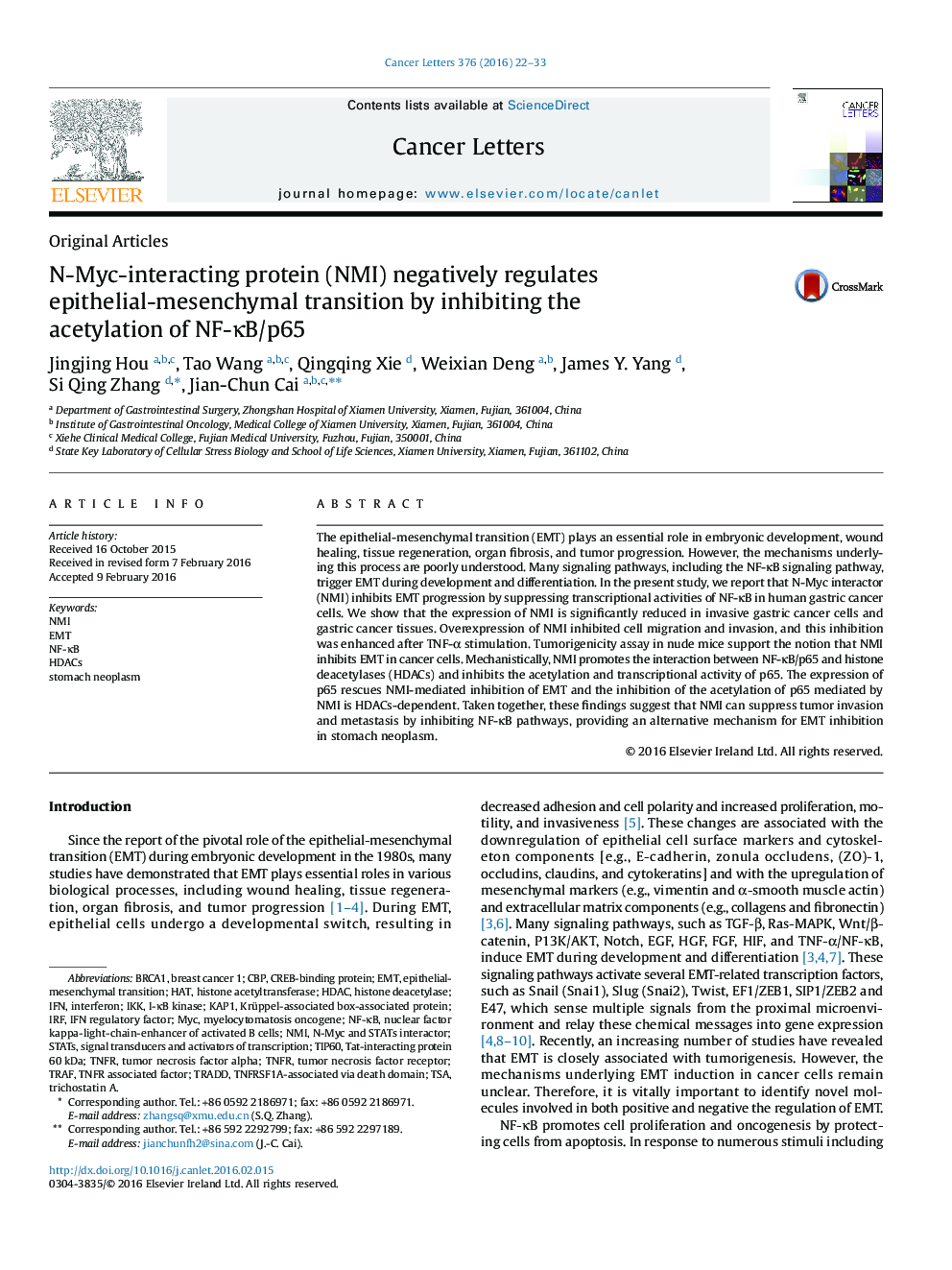| Article ID | Journal | Published Year | Pages | File Type |
|---|---|---|---|---|
| 10899303 | Cancer Letters | 2016 | 12 Pages |
Abstract
The epithelial-mesenchymal transition (EMT) plays an essential role in embryonic development, wound healing, tissue regeneration, organ fibrosis, and tumor progression. However, the mechanisms underlying this process are poorly understood. Many signaling pathways, including the NF-κB signaling pathway, trigger EMT during development and differentiation. In the present study, we report that N-Myc interactor (NMI) inhibits EMT progression by suppressing transcriptional activities of NF-κB in human gastric cancer cells. We show that the expression of NMI is significantly reduced in invasive gastric cancer cells and gastric cancer tissues. Overexpression of NMI inhibited cell migration and invasion, and this inhibition was enhanced after TNF-α stimulation. Tumorigenicity assay in nude mice support the notion that NMI inhibits EMT in cancer cells. Mechanistically, NMI promotes the interaction between NF-κB/p65 and histone deacetylases (HDACs) and inhibits the acetylation and transcriptional activity of p65. The expression of p65 rescues NMI-mediated inhibition of EMT and the inhibition of the acetylation of p65 mediated by NMI is HDACs-dependent. Taken together, these findings suggest that NMI can suppress tumor invasion and metastasis by inhibiting NF-κB pathways, providing an alternative mechanism for EMT inhibition in stomach neoplasm.
Keywords
NF-κBMYCHDACI-κB kinasemyelocytomatosis oncogeneCBPIKKKAP1IRFNmiSTATsTip60interferonIFNEMTbreast cancer 1IFN regulatory factornuclear factor kappa-light-chain-enhancer of activated B cellssignal transducers and activators of transcriptionHistone acetyltransferasehistone deacetylaseCREB-binding proteinBRCA1HATEpithelial-mesenchymal transition
Related Topics
Life Sciences
Biochemistry, Genetics and Molecular Biology
Cancer Research
Authors
Jingjing Hou, Tao Wang, Qingqing Xie, Weixian Deng, James Y. Yang, Si Qing Zhang, Jian-Chun Cai,
